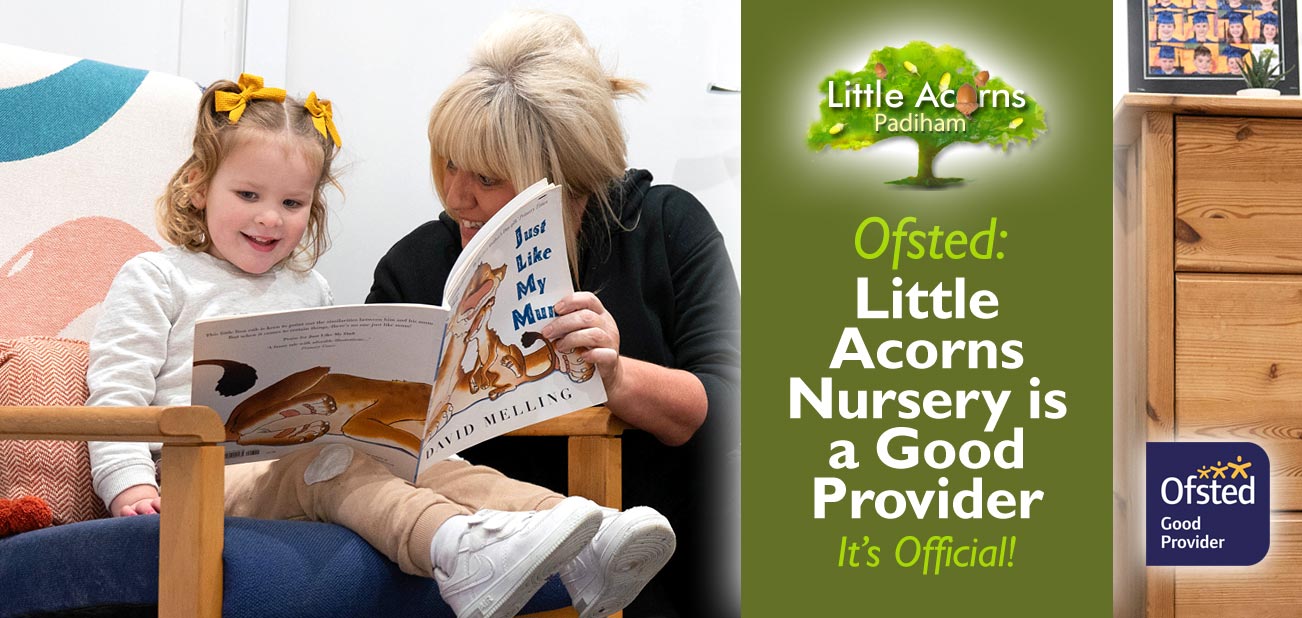
 We’re delighted to announce that Ofsted has published a stunning report for Little Acorns Nursery, Padiham. It’s now official that this excellent Padiham childcare setting is a ‘Good Provider’ — in every category! What’s more, the Ofsted inspector published some wonderfully positive comments about the nursery, staff, and quality of care as part of the report. Their findings are a testament to the high quality of the setting, the professionalism of its early years practitioners and leadership, and the positive impact the nursery has on babies and children in its care. Today, we take a deep dive into the details.
We’re delighted to announce that Ofsted has published a stunning report for Little Acorns Nursery, Padiham. It’s now official that this excellent Padiham childcare setting is a ‘Good Provider’ — in every category! What’s more, the Ofsted inspector published some wonderfully positive comments about the nursery, staff, and quality of care as part of the report. Their findings are a testament to the high quality of the setting, the professionalism of its early years practitioners and leadership, and the positive impact the nursery has on babies and children in its care. Today, we take a deep dive into the details.
• Overall effectiveness: Good
• The quality of education: Good
• Behaviour and attitudes: Good
• Personal development: Good
• Leadership & management: Good
A Welcoming, Safe & Secure Environment for ChildrenIn her report, the Ofsted inspector recognised the warm, welcoming, safe and secure nature of the setting and early years practitioners:
Such a positive environment and approach by staff is clearly being reflected in the children:
|
Independence & Self-Confidence in Little OnesThe inspector also had positive comments about children learning new skills, gaining in confidence, and becoming more independent — important for when they transition to school. Helped by “high aspirations for what children can do,” Ofsted follows up by saying “The expectations are well sequenced throughout the nursery, helping to build on children’s skills over time.” Ofsted remarked that “From babies upwards, they encourage children to have a go” and, as a result…
|
The Nursery’s Approach to the Early Years CurriculumThe Ofsted inspector seemed particularly impressed with the nursery’s approach to the early years curriculum, remarking that:
Targeted staff training, focused on the needs of the children, was also seen to be part of this success, with the Ofsted inspector commenting that it “has positively impacted on the implementation of the curriculum.” Indeed, the success of such an approach was seen to be working well right across the nursery, boosting children’s learning:
Assessment of children’s progress was also highly praised:
|
What About Children with SEND?The approaches outlined above were seen to apply well to children who may need extra support and those with special educational needs and/or disabilities:
Parents spoken to by the Ofsted Inspector also appreciated the nursery’s approach to extra help for children, including those with SEND:
|
Children’s Communication & LanguageOfsted recognised the nursery’s approach to boosting children’s language and communication skills in their report too. The inspector commented on our staff:
|
Children’s Learning StepsOfsted’s inspector praised Little Acorns’ staff in their approach to learning steps, commenting:
The inspector went on to say that such activities and experiences help to “build on children’s knowledge” and then gave some examples. |
Reading & Writing at Little AcornsThe Ofsted inspector commented favourably about the way in which staff at Little Acorns Nursery support the learning of the skills necessary to read and write. Children are also encouraged to develop a natural and active interest in books and reading. The inspector wrote, “Children are provided with the opportunities to develop the skills they will need for later writing” and “Leaders value the importance of providing lots of opportunities for children to enjoy stories. They provide a wide range of books for children to explore.” Coordination and dexterity were noted to be an important part of these successes:
Ofsted recognised that staff “Staff support children’s hand-eye coordination superbly. They have consulted with the local schools and used this to enhance the curriculum to ensure children develop the dexterity needed to support later writing.” |
Behaviour & Emotional Regulation at the NurseryDuring their visit, Ofsted recognised that children behaved well and that their emotional regulation skills were being nurtured appropriately by the nursery’s practitioners:
|
Healthy Lifestyles & Good ChoicesThe Ofsted inspector noted in her report that:
She pointed out that “Children benefit from many experiences to play outside in the fresh air and by walking in the community.” Also, in regard to healthy eating, she remarked: “Staff talk to children at mealtimes about the impact of food on their bodies. Children are beginning to know how to keep their bodies healthy. They talk about the need to keep their bodies hydrated and check that their friends have also had a drink of water.” Ofsted also recognised that children’s kindness is reflected in their treatment of the environment:
|
Effective SafeguardingOne of the most important things at any nursery is, of course, to keep children safe and well. Little Acorns Nursery scored well in this regard too, with the Ofsted inspector reporting that “the arrangements for safeguarding are effective” and:
|
Good Provision
It’s wonderful that Ofsted has recognised the hard work and professionalism at Little Acorns Nursery, Padiham. It’s clear that it’s benefiting children and enabling them to be as school-ready as possible by the time they leave us around the age of five. And, if there are areas we can still improve on, we will implement such measures without delay — all with a view to making children’s experiences at the nursery simply outstanding!
A Nursery Place for Your Child at Little Acorns
High-quality childcare in Padiham — for babies (3m+) and children under 5
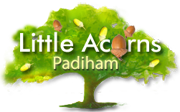
 If you like the sound of the Ofsted inspector’s comments and need high-quality weekday childcare in Padiham, Lancashire, get in touch. You can register for a place, request a guided tour with your child, or ask us any questions. We’re here to help and would love to meet you and your child! We also support free, government-funded childcare places for eligible children as young as just 9 months of age.
If you like the sound of the Ofsted inspector’s comments and need high-quality weekday childcare in Padiham, Lancashire, get in touch. You can register for a place, request a guided tour with your child, or ask us any questions. We’re here to help and would love to meet you and your child! We also support free, government-funded childcare places for eligible children as young as just 9 months of age.
Little Acorns Nursery is located in Padiham (Lancashire), so is just a stone’s throw away for families living in Hapton, Rose Grove, Burnley, Altham, Huncoat, Read, Simonstone, Sabden, Higham and Wood End. If you need weekday childcare, come and see us – we’d love to meet you!
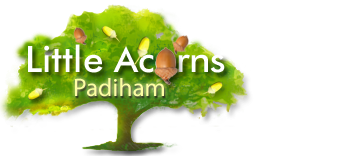
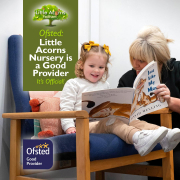
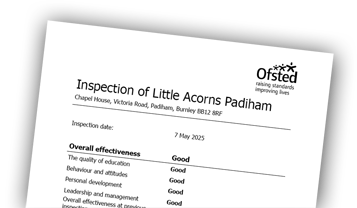
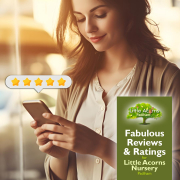

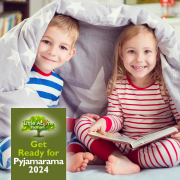
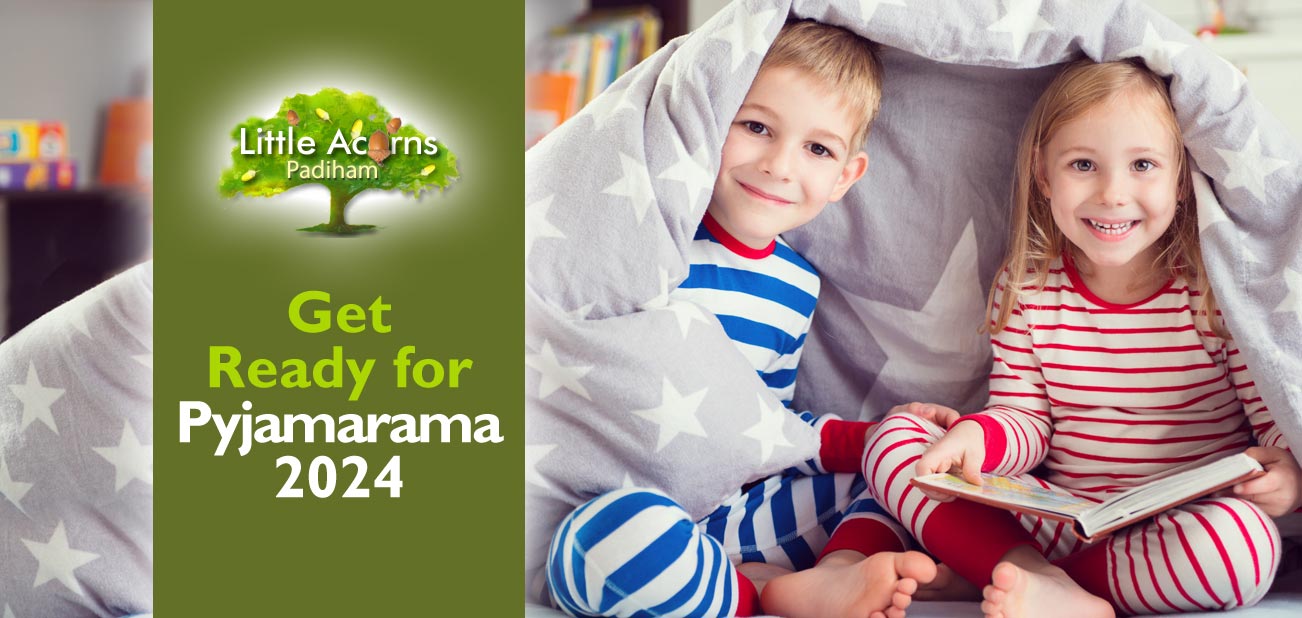
 Pyjamarama is a one-day fundraising event that’s organised through the children’s reading charity BookTrust. It takes place each year across a variety of UK settings including homes, schools, preschools, nurseries and more. As well as being great fun for those organising and taking part, the initiative is beneficial to millions of disadvantaged children. The ultimate aim is to raise money to fund the purchase of books and resources, so that every child in the UK gets the chance for bedtime stories and each family has proper reading opportunities. The initiative is hugely popular, great fun, and transforms lives. Today, we take a look at what to expect, how to get involved, and the many benefits of Pyjamarama.
Pyjamarama is a one-day fundraising event that’s organised through the children’s reading charity BookTrust. It takes place each year across a variety of UK settings including homes, schools, preschools, nurseries and more. As well as being great fun for those organising and taking part, the initiative is beneficial to millions of disadvantaged children. The ultimate aim is to raise money to fund the purchase of books and resources, so that every child in the UK gets the chance for bedtime stories and each family has proper reading opportunities. The initiative is hugely popular, great fun, and transforms lives. Today, we take a look at what to expect, how to get involved, and the many benefits of Pyjamarama. Pyjamarama is always a fun day for both adults and children. The added aspect of pyjamas makes it special, quirky and relaxed. And, at the end of the day, it’s incredibly worthwhile. Not only does it raise money to give disadvantaged children and their families opportunities for reading and bedtime stories, but it also encourages those children taking part in Pyjamarama to read more, for pleasure as much as anything. Additionally, it gives children a different perspective and encourages altruism and empathy for others less fortunate than themselves.
Pyjamarama is always a fun day for both adults and children. The added aspect of pyjamas makes it special, quirky and relaxed. And, at the end of the day, it’s incredibly worthwhile. Not only does it raise money to give disadvantaged children and their families opportunities for reading and bedtime stories, but it also encourages those children taking part in Pyjamarama to read more, for pleasure as much as anything. Additionally, it gives children a different perspective and encourages altruism and empathy for others less fortunate than themselves.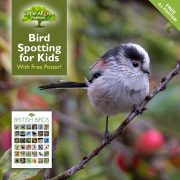
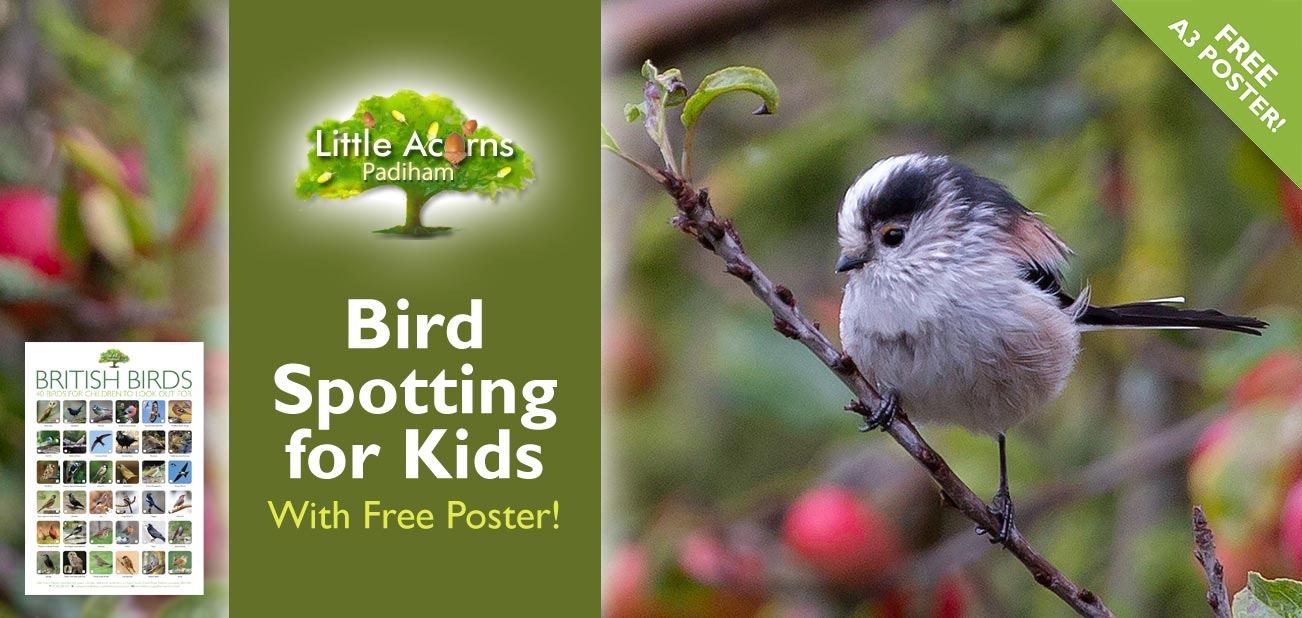
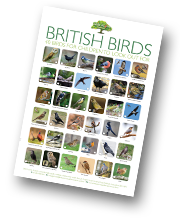 Today’s bird spotting activity for kids continues our series of nature-themed posts that each come with a free reference poster for families to download. Featuring 40 British birds, the activity and the poster represent a great opportunity to get children of all ages outdoors, closer to nature. As many of us know,
Today’s bird spotting activity for kids continues our series of nature-themed posts that each come with a free reference poster for families to download. Featuring 40 British birds, the activity and the poster represent a great opportunity to get children of all ages outdoors, closer to nature. As many of us know, 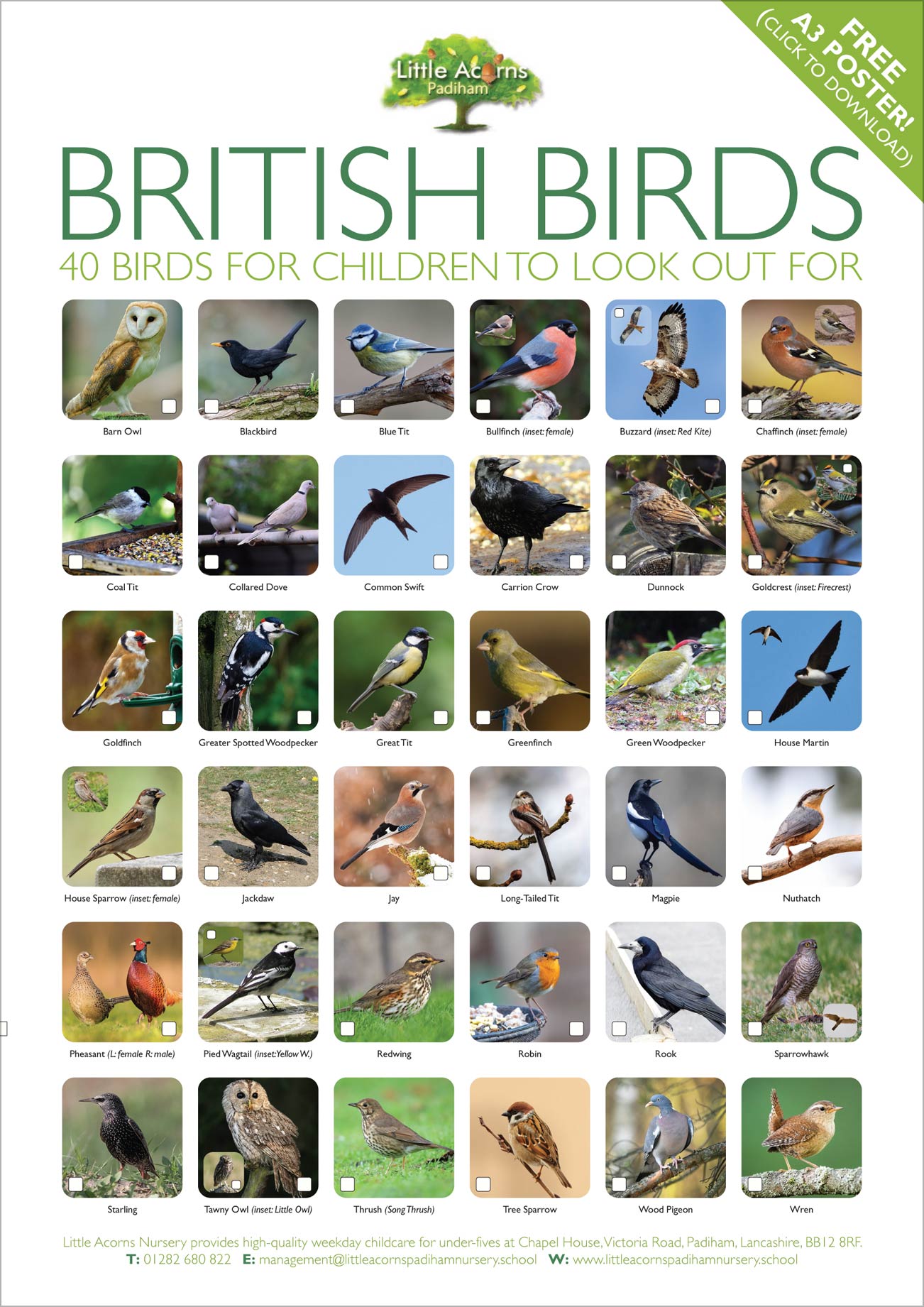
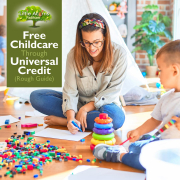
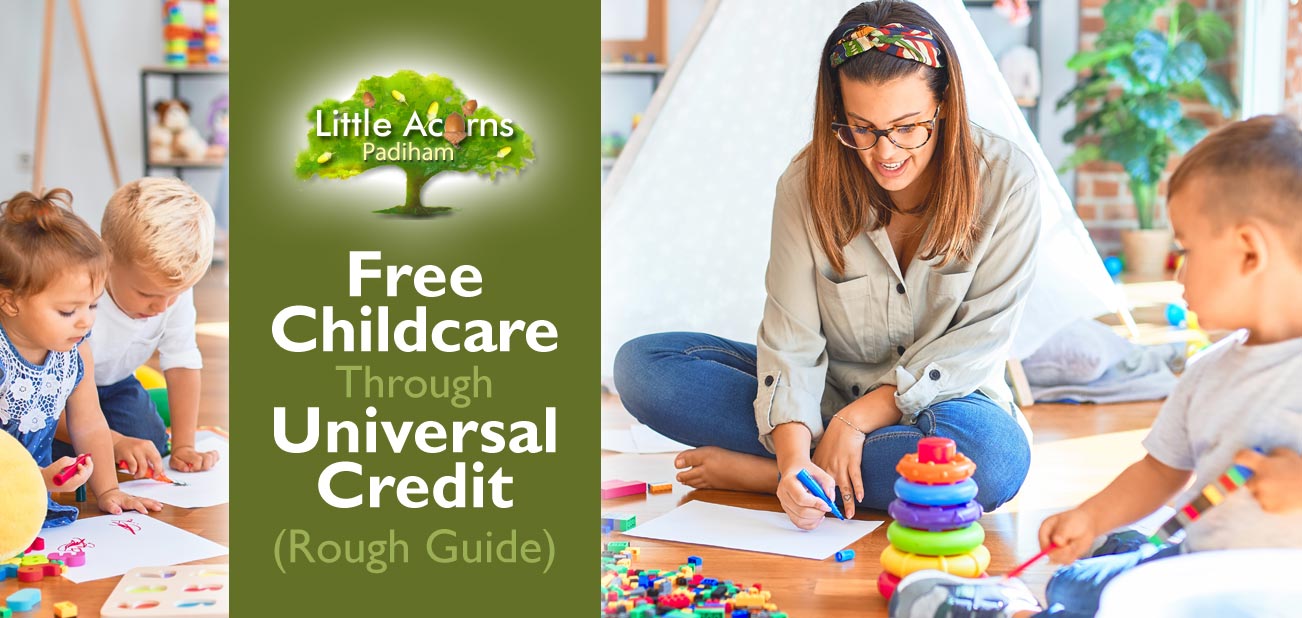
 Usually, you will need to pay for childcare costs first and then reclaim them through your Universal Credit childcare support account. However, there are some circumstances where you may be able to get some of your childcare costs paid upfront through the scheme. This recent change is designed to help families essentially with cash flow so that a major barrier to working is removed. That, in turn, will also help the economy.
Usually, you will need to pay for childcare costs first and then reclaim them through your Universal Credit childcare support account. However, there are some circumstances where you may be able to get some of your childcare costs paid upfront through the scheme. This recent change is designed to help families essentially with cash flow so that a major barrier to working is removed. That, in turn, will also help the economy.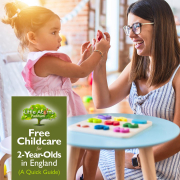
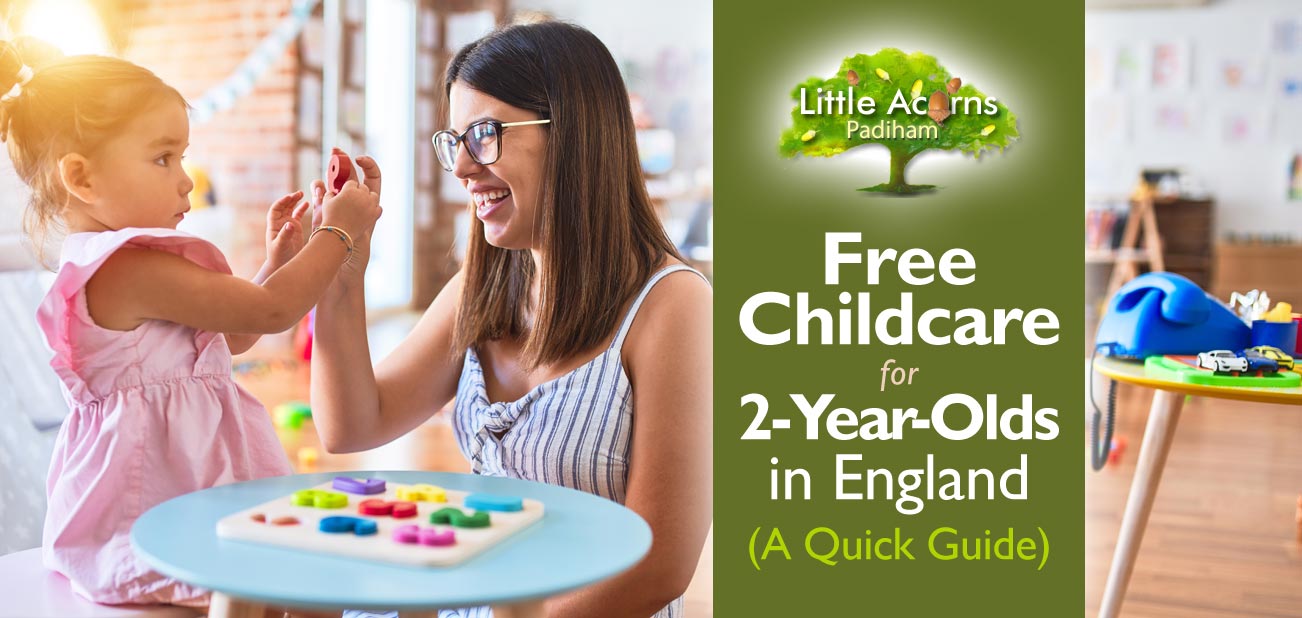
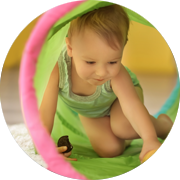 Eligible 2-year-olds can get a total of 570 free childcare hours during the course of a year. The entitlement is usually taken as 15 hours per week over 38 ‘term time’ weeks. However, families may wish to ask childcare providers if they can use the hours in a different way. For example, some may wish to stretch the hours out over 50 or so weeks of the year, in which case it would equate to approximately 11½ free hours per week. The nursery or childcare provider would need to confirm what’s possible. Any extra hours will need to be paid for by the family and the same is usually true for things like nappies, special trips and meals. Even so, 570 free childcare hours should really help families and may allow a stay-at-home parent to get back into the workplace sooner, even if only part-time.
Eligible 2-year-olds can get a total of 570 free childcare hours during the course of a year. The entitlement is usually taken as 15 hours per week over 38 ‘term time’ weeks. However, families may wish to ask childcare providers if they can use the hours in a different way. For example, some may wish to stretch the hours out over 50 or so weeks of the year, in which case it would equate to approximately 11½ free hours per week. The nursery or childcare provider would need to confirm what’s possible. Any extra hours will need to be paid for by the family and the same is usually true for things like nappies, special trips and meals. Even so, 570 free childcare hours should really help families and may allow a stay-at-home parent to get back into the workplace sooner, even if only part-time. Children aged two that live in England may be eligible if their parents/household are in receipt of one or more specific Government benefits. These include:
Children aged two that live in England may be eligible if their parents/household are in receipt of one or more specific Government benefits. These include: If none of the benefit-related criteria above applies, children aged 2 may still qualify for the childcare funding scheme in the following circumstances:
If none of the benefit-related criteria above applies, children aged 2 may still qualify for the childcare funding scheme in the following circumstances: The last category of eligible claimants is some 2-year-olds living in England who are non-UK citizens, whose households cannot claim benefits and whose household income is below a certain threshold. Thresholds vary from £26,500 to £38,600 depending on how many children the family has and whether they live inside or outside of London.
The last category of eligible claimants is some 2-year-olds living in England who are non-UK citizens, whose households cannot claim benefits and whose household income is below a certain threshold. Thresholds vary from £26,500 to £38,600 depending on how many children the family has and whether they live inside or outside of London.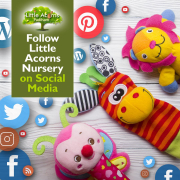
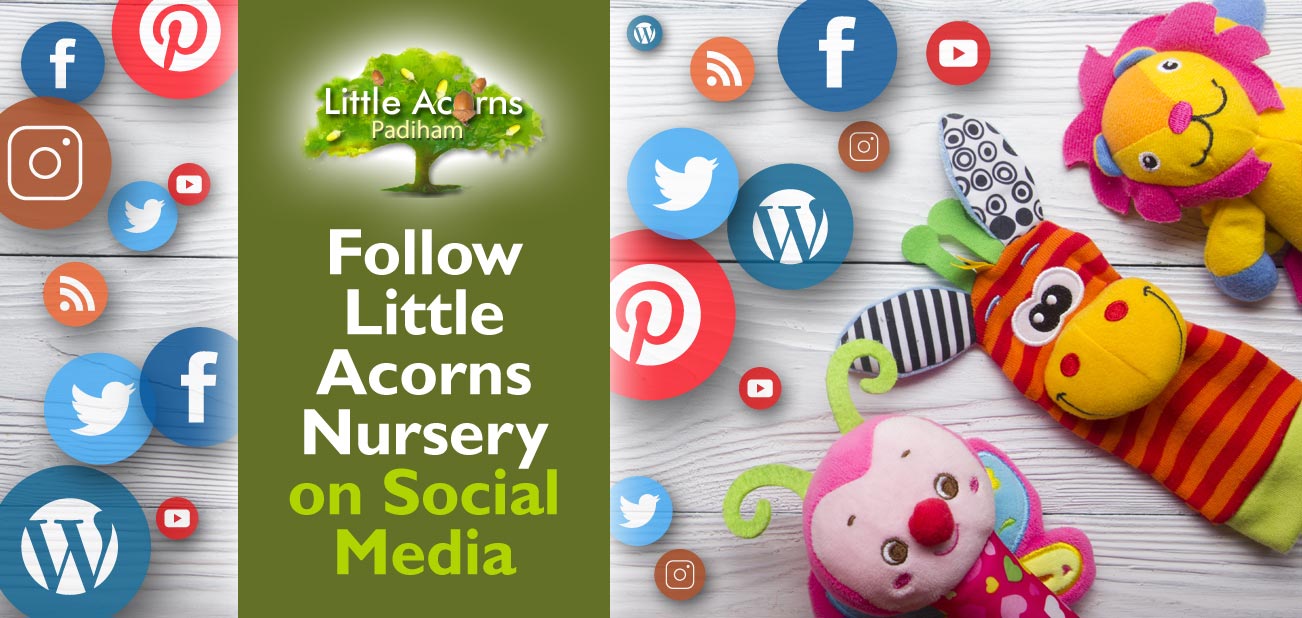
 This is what we call our blog (short for ‘web log’) where we regularly publish guides and useful information for parents of children under five.
This is what we call our blog (short for ‘web log’) where we regularly publish guides and useful information for parents of children under five.  We’re @NurseryPadiham on Twitter, so you can follow us at
We’re @NurseryPadiham on Twitter, so you can follow us at  We’re @TotsNursery on Facebook (because we took over the Adventure Tots childcare business), so you can follow us at
We’re @TotsNursery on Facebook (because we took over the Adventure Tots childcare business), so you can follow us at  We’re @LittleAcornsNurseryBB12 on Instagram, so you can follow us at
We’re @LittleAcornsNurseryBB12 on Instagram, so you can follow us at  We’re also @LittleAcornsNurseryBB12 on Pinterest, so you can follow our pins and boards at
We’re also @LittleAcornsNurseryBB12 on Pinterest, so you can follow our pins and boards at  We appreciate that, if you’re reading this, you’ve already found us. However, if you ever need to find us again and aren’t sure where to look, we’re also on Google.
We appreciate that, if you’re reading this, you’ve already found us. However, if you ever need to find us again and aren’t sure where to look, we’re also on Google. 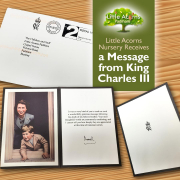
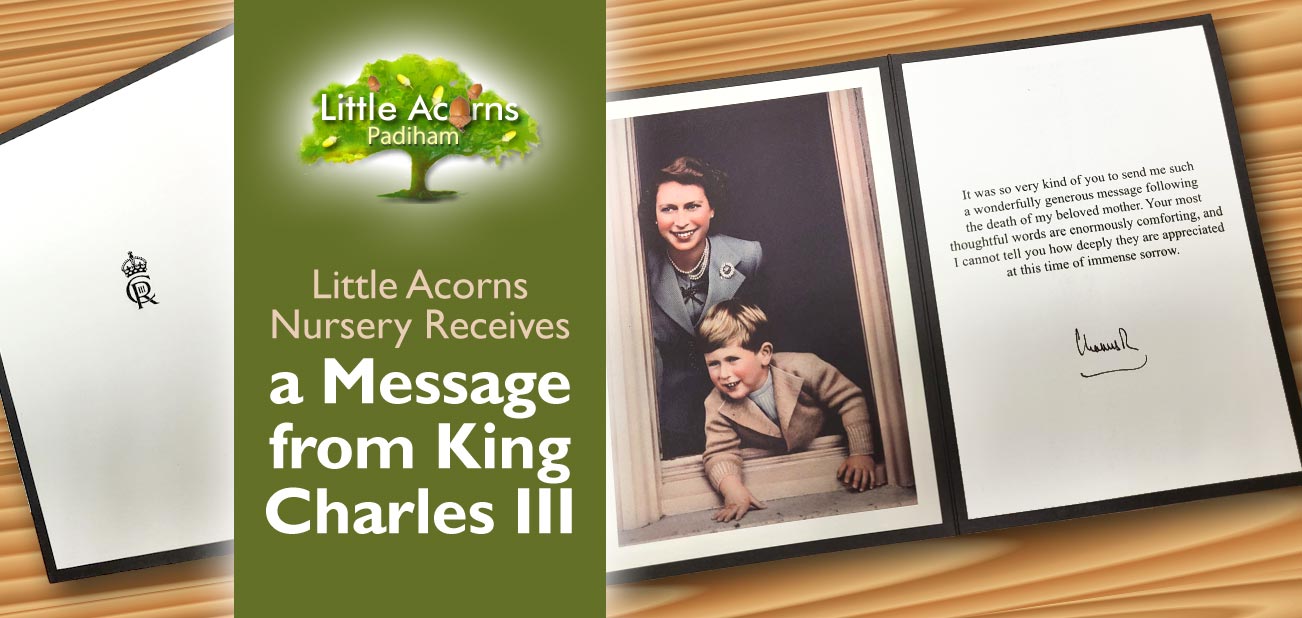
 Then, in early February, to our surprise and absolute delight, we received correspondence notably featuring a postmark from Buckingham Palace and a Royal crest. It was addressed to the children and staff at Little Acorns Nursery, Padiham. Inside was a beautiful and heartfelt reply card and message, sent by none other than King Charles himself!
Then, in early February, to our surprise and absolute delight, we received correspondence notably featuring a postmark from Buckingham Palace and a Royal crest. It was addressed to the children and staff at Little Acorns Nursery, Padiham. Inside was a beautiful and heartfelt reply card and message, sent by none other than King Charles himself!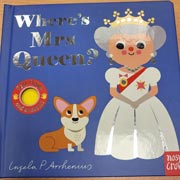 The eagle-eyed will notice that the little photo above also shows one of the nursery children’s most popular books, “Where’s Mrs Queen?” by Ingela P Arrhenius. Part of a series, this ‘early years’ book features charming illustrations and interactive felt flaps inside. The children can use these to reveal London-themed characters like a policeman, a bus driver, a soldier and Her Majesty Queen Elizabeth II herself (and a corgi dog, of course). The final page even integrates a surprise mirror, so the children can reveal their own faces — much to their delight and amusement! It’s a simple but fun, interactive and, importantly, sensory book for the little ones to discover and explore.
The eagle-eyed will notice that the little photo above also shows one of the nursery children’s most popular books, “Where’s Mrs Queen?” by Ingela P Arrhenius. Part of a series, this ‘early years’ book features charming illustrations and interactive felt flaps inside. The children can use these to reveal London-themed characters like a policeman, a bus driver, a soldier and Her Majesty Queen Elizabeth II herself (and a corgi dog, of course). The final page even integrates a surprise mirror, so the children can reveal their own faces — much to their delight and amusement! It’s a simple but fun, interactive and, importantly, sensory book for the little ones to discover and explore.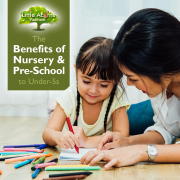
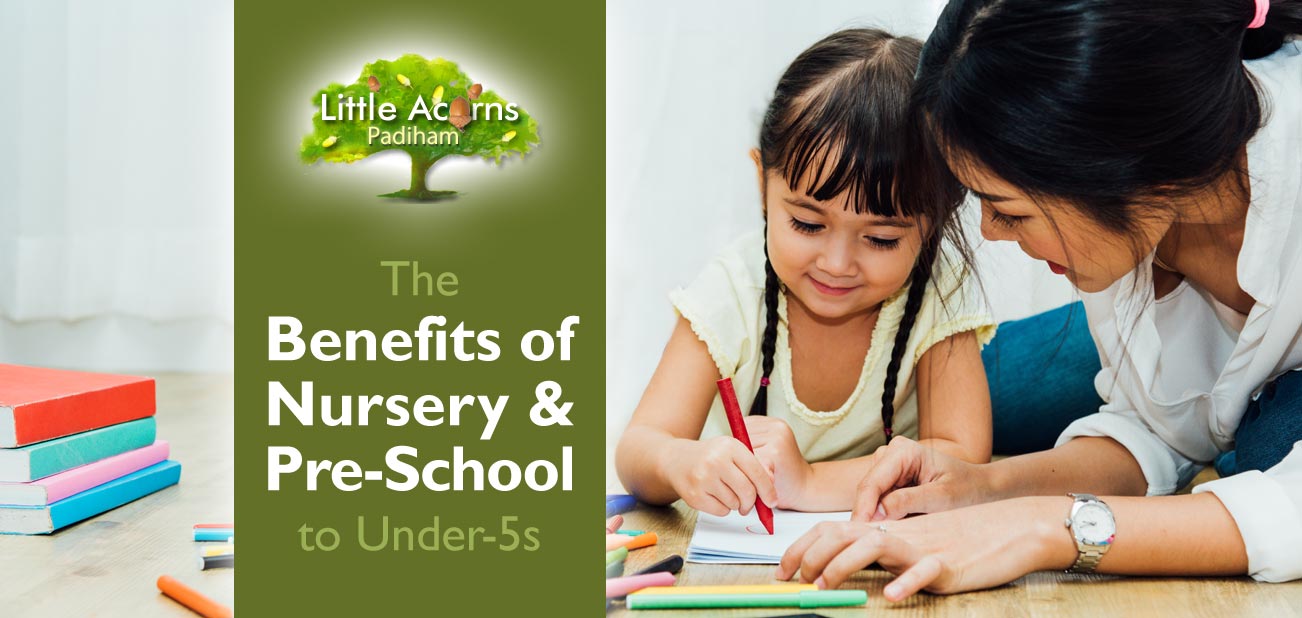
 A good nursery or pre-school is so much more than just a crèche, playgroup, kindergarten or childminding service.
A good nursery or pre-school is so much more than just a crèche, playgroup, kindergarten or childminding service.  Nurseries like Little Acorns in Padiham provide a dynamic environment where children mostly learn through different types of play and pre-planned, carefully structured activities. Much of their learning is achieved through the application of the
Nurseries like Little Acorns in Padiham provide a dynamic environment where children mostly learn through different types of play and pre-planned, carefully structured activities. Much of their learning is achieved through the application of the 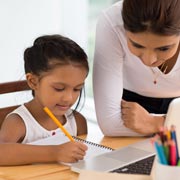 A good early years childcare provider like Little Acorns will also nurture every aspect of children’s personal development. Research suggests that starting childcare and a good early years education at a young age can have significant positive effects on children’s development.
A good early years childcare provider like Little Acorns will also nurture every aspect of children’s personal development. Research suggests that starting childcare and a good early years education at a young age can have significant positive effects on children’s development. Spending time at nursery and pre-school provides children with countless opportunities to interact with peers and to learn to socialise with others. Through doing so, they’ll develop their social skills generally, including things like learning good manners, needing to sometimes share or take turns, learning about mutual respect, and following rules.
Spending time at nursery and pre-school provides children with countless opportunities to interact with peers and to learn to socialise with others. Through doing so, they’ll develop their social skills generally, including things like learning good manners, needing to sometimes share or take turns, learning about mutual respect, and following rules.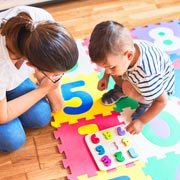 Good nurseries and pre-schools like Little Acorns welcome and support children of all abilities. As part of this and whenever possible, they will create an inclusive environment for children with special educational needs or disabilities (SEND). They’ll support them in every way they can including, where possible, provision of special equipment, adapting the environment to make it more accessible, and obtaining additional funding for extra resources. They’ll even work with outside professionals, where appropriate, to develop the best ‘joined-up’ plan to support children. The result is a positive and responsive culture where children feel comfortable and valued, irrespective of ability or disability.
Good nurseries and pre-schools like Little Acorns welcome and support children of all abilities. As part of this and whenever possible, they will create an inclusive environment for children with special educational needs or disabilities (SEND). They’ll support them in every way they can including, where possible, provision of special equipment, adapting the environment to make it more accessible, and obtaining additional funding for extra resources. They’ll even work with outside professionals, where appropriate, to develop the best ‘joined-up’ plan to support children. The result is a positive and responsive culture where children feel comfortable and valued, irrespective of ability or disability.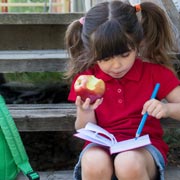 All of the above will really help children to develop the skills and confidence they need to absolutely thrive once they start at primary school. As well as being more able and literate from the moment they start, they’ll more easily be able to follow routines, listen to instructions, and work independently. They’ll absolutely hit the ground running with the existing knowledge, tools and abilities that they learned during their all-important early years. Indeed, those children who receive a high quality early years education have been shown to attain higher grades in their GCSEs and can be the equivalent of a year ahead by the time they reach the age of 15.
All of the above will really help children to develop the skills and confidence they need to absolutely thrive once they start at primary school. As well as being more able and literate from the moment they start, they’ll more easily be able to follow routines, listen to instructions, and work independently. They’ll absolutely hit the ground running with the existing knowledge, tools and abilities that they learned during their all-important early years. Indeed, those children who receive a high quality early years education have been shown to attain higher grades in their GCSEs and can be the equivalent of a year ahead by the time they reach the age of 15.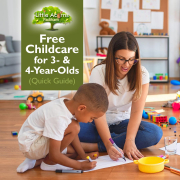
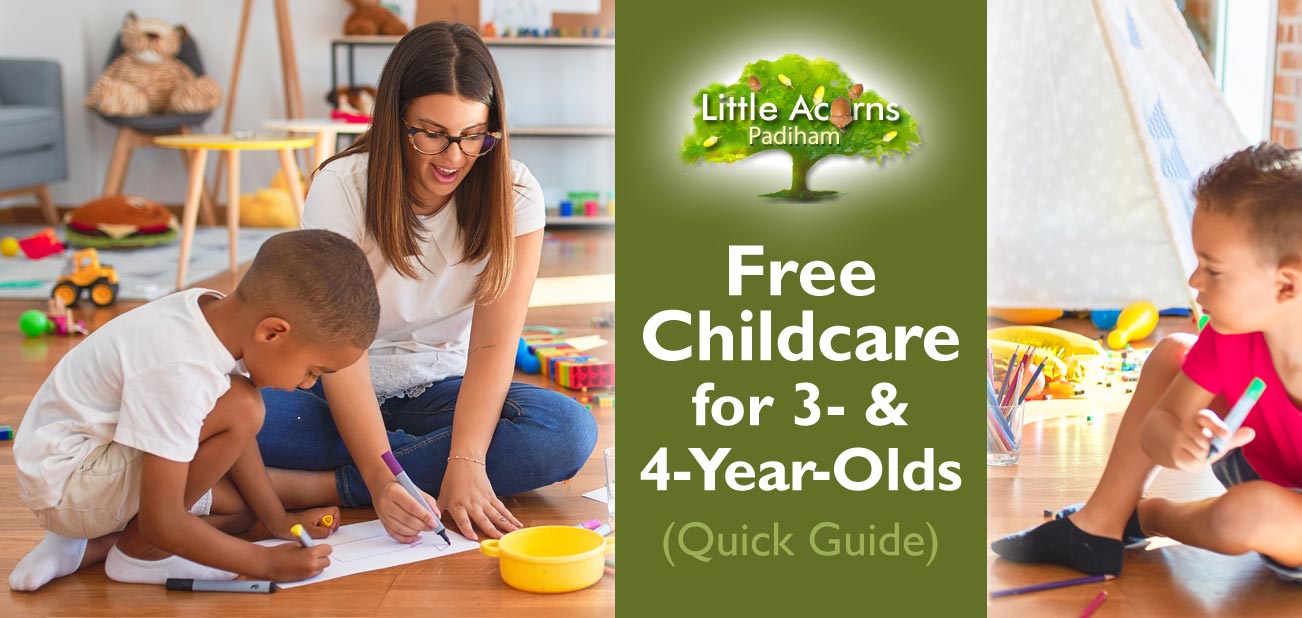
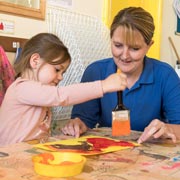 If you live in England and have a child aged 3 or 4, this article is for you. Did you know that your child is entitled to free childcare each week? In fact, virtually all children aged 3 or 4 that live in England can get an impressive 570 hours of free childcare each year. Some can even get twice that amount of funded childcare hours. Today we’ll go through what’s available – totally free of charge – and the rules around eligibility.
If you live in England and have a child aged 3 or 4, this article is for you. Did you know that your child is entitled to free childcare each week? In fact, virtually all children aged 3 or 4 that live in England can get an impressive 570 hours of free childcare each year. Some can even get twice that amount of funded childcare hours. Today we’ll go through what’s available – totally free of charge – and the rules around eligibility.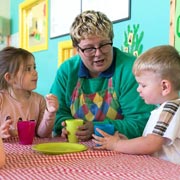 The ‘15 Hours Free Childcare’ scheme is a Government-funded initiative that provides free early education and childcare for all 3- and 4-year-olds living in England. Under the scheme, eligible children are entitled to 15 hours of free childcare each week, usually spread over 38 weeks, to total 570 hours per year. Optionally, however, some families may choose to have their child attend a childcare setting for less than 15 hours per week but spread the free hour allowance throughout the whole year. Others may prefer to take longer breaks during the holidays and using the hours more intensively during term time. Parents/guardians will need to check what’s possible with their particular childcare provider (we try to be as flexible as possible at
The ‘15 Hours Free Childcare’ scheme is a Government-funded initiative that provides free early education and childcare for all 3- and 4-year-olds living in England. Under the scheme, eligible children are entitled to 15 hours of free childcare each week, usually spread over 38 weeks, to total 570 hours per year. Optionally, however, some families may choose to have their child attend a childcare setting for less than 15 hours per week but spread the free hour allowance throughout the whole year. Others may prefer to take longer breaks during the holidays and using the hours more intensively during term time. Parents/guardians will need to check what’s possible with their particular childcare provider (we try to be as flexible as possible at 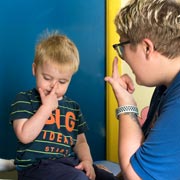 You must be the child’s parent or legal guardian.
You must be the child’s parent or legal guardian.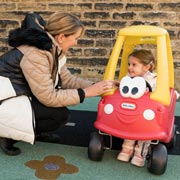 The ‘30 Hours Free Childcare’ scheme is a very similar Government-funded initiative that provides eligible families in England with up to 30 hours of free childcare per week. Again, this is for children aged 3 and 4. The scheme is designed to help working families with the cost of childcare and to support parents who want to return to work or increase their hours.
The ‘30 Hours Free Childcare’ scheme is a very similar Government-funded initiative that provides eligible families in England with up to 30 hours of free childcare per week. Again, this is for children aged 3 and 4. The scheme is designed to help working families with the cost of childcare and to support parents who want to return to work or increase their hours.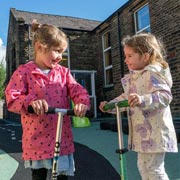 You are usually still be eligible if you are off work on annual leave or sick leave, or parental leave if it is not being taken for the same child you are claiming childcare funding for.
You are usually still be eligible if you are off work on annual leave or sick leave, or parental leave if it is not being taken for the same child you are claiming childcare funding for.